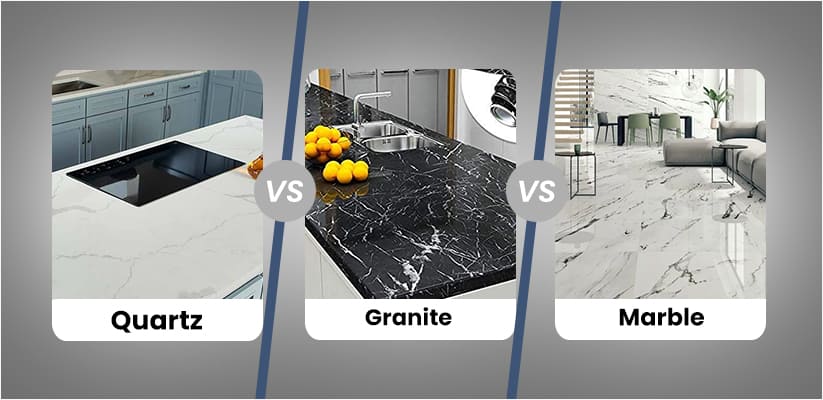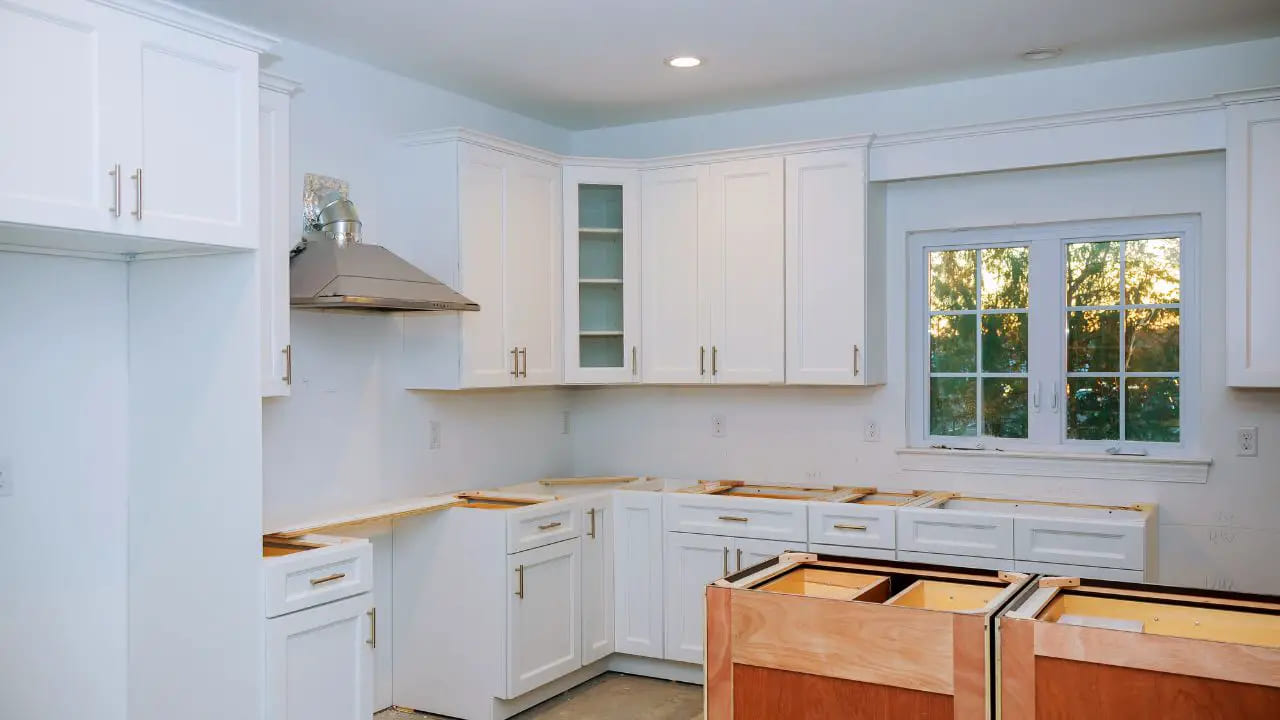Quartz vs Granite vs Marble: Which Countertop Material is Right for You?
If you're in the market for new kitchen countertops, you may feel overwhelmed by the many available options. Each countertop material has unique characteristics, benefits, and drawbacks, from quartz to granite to marble. So how do you choose the right one for your home?
In this blog post, we'll explore the pros and cons of quartz, granite, and marble countertops and offer tips and advice for selecting the best countertop material. Whether you're renovating your entire kitchen or simply updating your countertops, this guide will help you make an informed decision that you'll be happy with for years to come.
Quartz Countertops
Quartz is a popular countertop material made from crushed quartz and resin. It's a durable, non-porous material that resists scratches, stains, and heat. It's also available in a wide range of colours and patterns, including options that mimic the look of natural stone.
Pros:
- Durability: Quartz countertops are highly resistant to scratches, chips, and cracks, making them a great choice for high-traffic areas like the kitchen.
- Low Maintenance: Quartz is non-porous and doesn't require sealing or special cleaning products. Wipe it down with a damp cloth and mild soap to keep it looking like new.
- Versatility: Quartz is available in various colours and patterns, including options that mimic the look of marble or granite.
- Health: Quartz is a non-porous surface that does not harbour bacteria, making it a good choice for people concerned about hygiene.
Cons:
- Cost: Quartz countertops are often more expensive than other materials, especially if you opt for a high-end brand or a custom design.
- Heat Resistance: While quartz is highly resistant to heat, it's still important to use a trivet or hot pad to protect the surface from direct heat.
- Environmental Impact: Quartz is not a renewable resource and requires significant manufacturing energy.
Granite Countertops
Granite is a natural stone for its durability, heat resistance, and unique patterns and colours. It's a popular choice for high-end kitchens and can add value to your home.
Pros:
- Durability: Granite is one of the most durable countertop materials available and can withstand heat, scratches, and stains with proper maintenance.
- Aesthetics: Granite is a natural stone, so each slab is unique. It's available in various colours and patterns, including bold veining or speckled finishes.
- Heat Resistance: Granite can withstand high temperatures, making it a great choice for cooking and baking.
- Resale Value: Granite is a popular countertop material and can add value to your home.
Cons:
- Porosity: Granite is a porous material which can absorb liquids and stains if not properly sealed. It also requires regular sealing to maintain its appearance.
- Cost: Granite can be expensive, especially if you opt for a rare or exotic slab.
- Maintenance: While granite is durable, it requires regular maintenance to keep it looking new. You'll need to reseal it every 1-2 years to prevent stains and damage.
Marble Countertops
Marble is a luxurious natural stone known for its beauty and elegance. It's a classic choice for high-end kitchens and can add a timeless touch to your home.
Pros:
Aesthetics: Marble is a natural stone with a classic beauty that never goes out of style. Its unique veining and patterns can add a touch of elegance to any kitchen.
- Heat Resistance: Marble is heat-resistant and can withstand high temperatures, making it a good choice for cooking and baking.
- Variety: Marble comes in various colours and patterns, from subtle to bold, allowing you to find the perfect match for your kitchen's design.
Cons:
- Porosity: Marble is a porous stone easily stained by acidic substances like lemon juice or red wine. It also requires regular sealing to maintain its appearance.
- Durability: Marble is a softer stone than granite or quartz and can be easily scratched or chipped if not properly cared for.
- Cost: Marble is often more expensive than other countertop materials, especially if you opt for a rare or exotic slab.
- Maintenance: Marble requires regular maintenance to keep it looking its best. It needs to be sealed regularly, and stains and etching should be addressed promptly.
Choosing the Right Countertop Material
Now that you know the pros and cons of each countertop material, how do you choose the right one for your home? Here are some factors to consider:
- Budget: Determine how much you will spend on your new countertops. Quartz is often the most expensive option, while granite and marble can vary depending on the slab's rarity and quality.
- Aesthetic: Consider the look you want for your kitchen. Do you prefer a classic, elegant look or a more modern, sleek appearance?
- Maintenance: How much time and effort will you put into maintaining your countertops? Quartz is the lowest maintenance option, while marble requires the most upkeep.
- Functionality: How will you be using your countertops? If you're an avid cook, you may want a heat-resistant material like granite or marble. If you have young children or are concerned about hygiene, quartz may be a better choice.
Choosing the right countertop material for your kitchen is an important decision that can impact your home's value, functionality, and aesthetics. By understanding the pros and cons of quartz, granite, and marble countertops and considering your budget, aesthetic preferences, and maintenance needs, you can make an informed decision that you'll be happy with for years to come. Our countertop business offers a wide selection of high-quality materials and can help you find the perfect match for your home.
Contact us today to learn more!


